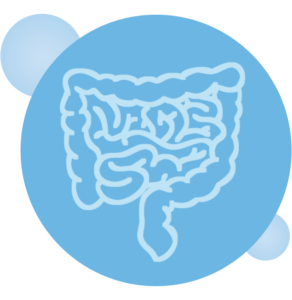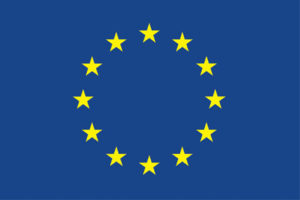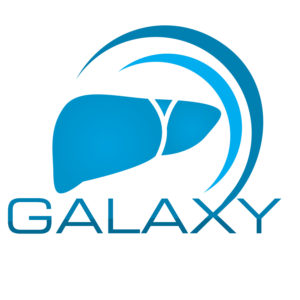Dernière mise à jour : 1er août 2023
Qu'est-ce qu'un cookie ?
Les cookies sont de petits fichiers de données que les sites web téléchargent sur l'ordinateur, le téléphone ou la tablette d'un utilisateur. La plupart des navigateurs web acceptent automatiquement les cookies. Ils aident les fournisseurs de sites web, par exemple, à reconnaître un utilisateur qui a déjà visité un site web. De plus amples détails sur les cookies utilisés sur ce site web et leurs finalités sont présentés ci-dessous.
- Vous aider à naviguer sur le site web de la manière la plus simple possible
- Vous aider à l'inscription à nos événements, à la connexion et à la possibilité de fournir un retour d'information.
- Analyser l'utilisation du site (combien d'utilisateurs ont visité une page spécifique par exemple)
- Analyser l'utilisation de nos produits, services ou applications
- Contribuer à nos efforts de promotion et de marketing (y compris la publicité comportementale)
- Proposer le contenu de tiers (comme le contenu des réseaux sociaux)
Des informations détaillées sur chaque cookie peuvent être trouvées dans la section de la catégorie de cookies appropriée de la bannière ainsi que dans la section ci-dessous.
Description de la catégorie de cookies
COOKIES STRICTEMENT NÉCESSAIRES
Les cookies strictement nécessaires contribuent à rendre un site web utilisable en permettant des fonctions de base telles que la navigation et l'accès aux zones sécurisées du site web. Ces cookies sont nécessaires au fonctionnement du site web et ne peuvent pas être désactivés dans nos systèmes. Ils ne sont généralement installés qu'en réponse à des actions que vous effectuez et qui équivalent à une demande de services, telles que le réglage de vos préférences en matière de confidentialité, l'ouverture d'une session ou le remplissage de formulaires. Il se peut que vous puissiez refuser ces cookies par l'intermédiaire de votre navigateur, mais certaines parties du site ne fonctionneront alors pas. Ces cookies ne stockent aucune information personnelle identifiable.
Liste détaillée des cookies strictement nécessaires
| COOKIES DE PREMIÈRE ET DE TIERCE PARTIE | NOM | PRESTATAIRE | OBJECTIF | CONSERVATION |
|---|---|---|---|---|
| Tiers | moove_gdpr_popup | Mooveagency.com | Enregistre les paramètres des cookies. Pour les préférences de l'utilisateur uniquement. Pas d'interaction externe. | 1 an |
COOKIES FONCTIONNELS
Ces cookies permettent au site web d'offrir une fonctionnalité et une personnalisation améliorées. Ils peuvent être installés par nous ou par des fournisseurs tiers dont nous avons ajouté les services à nos pages. Si vous n'autorisez pas ces cookies, il se peut que tout ou une partie de ces services ne fonctionnent pas correctement.
Liste détaillée des cookies fonctionnels
| COOKIES DE PREMIÈRE ET DE TIERCE PARTIE | NOM | PRESTATAIRE | OBJECTIF | CONSERVATION |
|---|---|---|---|---|
| Tiers | Divers | Youtube | Préférences de l'utilisateur, consentement, localisation et marketing. | 2 à 400 jours |
COOKIES DE PERFORMANCE
Ces cookies nous permettent de compter les visites et les sources de trafic afin de mesurer et d'améliorer les performances de notre site. Ils nous aident à savoir quelles sont les pages les plus et les moins populaires et à voir comment les visiteurs naviguent sur le site.
Liste détaillée des cookies de performance
| COOKIES DE PREMIÈRE ET DE TIERCE PARTIE | NOM | PRESTATAIRE | OBJECTIF | CONSERVATION |
|---|---|---|---|---|
| Tiers | _ga_ | google.com | Enregistrer les choix des visiteurs en matière de cookies. | 400 jours |
| Tiers | _gat_gtag_ | google.com | Enregistre les données du code de suivi. | 1 minute |
| Tiers | _ga | google.com | Il calcule les visiteurs, les données relatives aux sessions et aux campagnes et assure également le suivi de l'utilisation du site. | 400 jours |
| Tiers | _gid | google.com | Enregistre un identifiant unique qui est utilisé pour générer des données statistiques sur la façon dont le visiteur utilise le site web. | 1 jour |
COOKIES DE MARKETING
Ces cookies sont utilisés pour suivre les habitudes de navigation de nos visiteurs. Ils peuvent être utilisés pour établir un profil de recherche et/ou un historique de navigation pour chaque visiteur. Des données identifiables ou uniques sont collectées pour montrer un contenu marketing pertinent/personnalisé à chaque utilisateur. Les informations qui identifient de manière unique les navigateurs et les appareils Internet des utilisateurs sont utilisées pour afficher des publicités ciblées et/ou pour partager ces données avec des tiers dans le même but.
Liste détaillée des cookies marketing
| COOKIES DE PREMIÈRE ET DE TIERCE PARTIE | NOM | PRESTATAIRE | OBJECTIF | CONSERVATION |
|---|---|---|---|---|
| Non Applicable |
Refuser les cookies
Vous n'êtes pas obligé d'accepter les cookies, mais si vous ne les acceptez pas, les fonctionnalités du site risquent d'être réduites. Vous pouvez gérer vos préférences concernant les cookies et autres technologies de suivi et révoquer votre consentement dans la bannière. Vous pouvez retirer votre consentement à tout moment. Si vous souhaitez obtenir plus d'informations sur la suppression, la désactivation et le blocage des cookies, veuillez consulter le site web : https://knowcookies.com et vérifier les sections "gérer les cookies" et "guide des webmasters".
Mise à jour de notre politique relative aux cookies
Il est possible que nous mettions à jour notre politique relative aux cookies sur ce site web conformément aux exigences légales et techniques. Nous vous recommandons donc de lire cette politique de temps en temps afin d'être correctement informé de la manière dont nous utilisons les cookies et de la finalité de cette utilisation.
Contact
Si vous avez des questions sur la présente politique relative aux cookies ou sur la collecte, le traitement et la divulgation de vos données à caractère personnel et sur vos droits en matière de protection des données, veuillez consulter notre politique de confidentialité.





